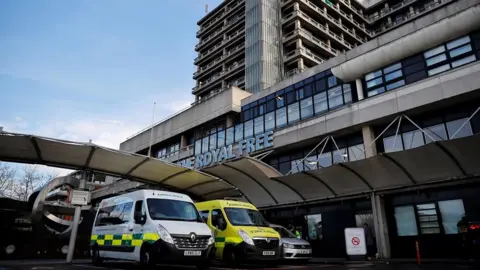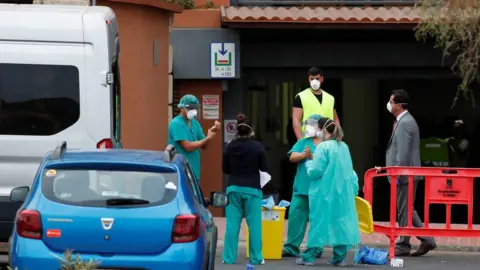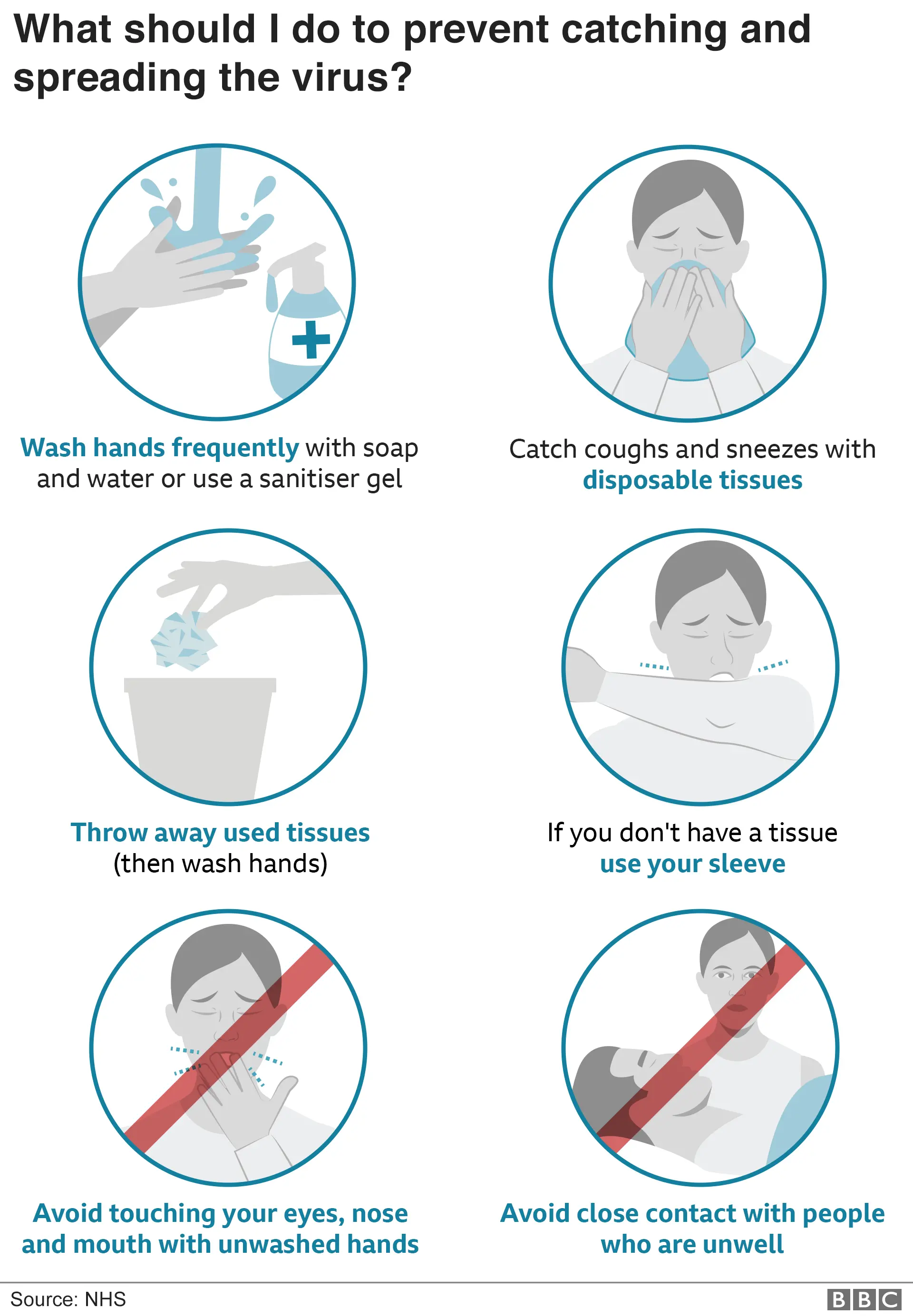Coronavirus: First Welsh case among three new UK diagnoses
 Getty Images
Getty ImagesThree more cases of the coronavirus have been confirmed in the UK, including the first one in Wales.
Two new patients in England contracted the virus while in Iran, the Department of Health and Social Care said.
Public Health Wales said it was working to identify close contacts of the Welsh patient, who is believed to be from the Swansea area and was infected in Italy before returning to the UK.
The new cases bring the total number in the UK to 19.
Wales' chief medical officer Dr Frank Atherton said "all appropriate measures" were being taken to care for the patient and reduce the risk of transmission.
The patients in England are being treated at a specialist centre at the Royal Free Hospital in London.
Northern Ireland also confirmed its first case on Thursday. Authorities said they have contacted passengers who sat near the woman on a flight from northern Italy to Dublin.
Prime Minister Boris Johnson will chair a meeting of the government's Cobra emergency committee on Monday in response to a growing number of cases in Europe.
Meanwhile, Bank of England governor Mark Carney has warned that the coronavirus outbreak could lead to a downgrade of the UK's economic growth prospects, in an interview with Sky News.
 Reuters
ReutersIt comes as airline Jet2 said British guests at a locked-down hotel in Tenerife would not be flown home until 10 March, unless they tested negative.
Some 168 Britons were among hundreds of guests confined to the Costa Adeje Palace earlier this week.
BBC reporter Dan Johnson said nine Canary Islands residents were allowed to leave the hotel on Friday because they arrived after four Italian guests with the virus had left.
Experts have warned of school closures and the cancellation of major sporting events, concerts and festivals in the UK in a bid to stop the spread of the virus, which causes Covid-19.
England's chief medical officer, Prof Chris Whitty, said on Thursday that transmission of the virus between people in the UK was "just a matter of time".
He said if the outbreak intensifies, it may be necessary to close schools and stop mass gatherings of people for "probably more than two months".


It is important to realise the UK does not have an "outbreak" of the coronavirus.
We are dealing with the ripples of large, uncontrolled outbreaks elsewhere in the world.
The cases announced on Thursday and Friday were all people who had been infected abroad before travelling to the UK - the virus is not spreading from person to person here.
It means the UK's strategy remains one of containment - isolate any infected people and perform rigorous detective work to find and test anyone they come into contact with.
Further cases are almost inevitable for as long as outbreaks in China, Italy, Iran, South Korea and Japan continue.

The World Health Organization warned that the outbreak had reached a "decisive point" and had "pandemic potential".
Globally, more than 80,000 people have been infected. About 2,800 have died - the majority in China's Hubei province.
In other developments:
- The Geneva Motor Show - one of the most important auto industry gatherings of the year - is the latest big event to be cancelled
- A show at Paris Fashion Week proved unintentionally timely as models wore outfits complete with matching face masks
- Newcastle United manager Steve Bruce said the club has banned shaking hands on the training ground
- And stock markets are suffering their worst week since 2008 as fears over the impact of the coronavirus continue to grip investors
What should I do to minimise the risk?
Public health advice is to cover your mouth and nose with a tissue or sleeve when you cough or sneeze, throw away tissues immediately after use and wash your hands frequently.

It is also advised to avoid touching your eyes, nose or mouth with unclean hands and avoid close contact with people who are unwell.
What is the travel advice?
The Foreign and Commonwealth Office (FCO) is warning against all but essential travel to 11 quarantined towns in Italy, two cities in South Korea and mainland China.
The Department of Health says anyone who has returned from those specified parts of Italy and South Korea, as well as Iran, since 19 February should call the NHS 111 helpline, stay indoors and avoid contact with others.
Anyone who has returned in the past 14 days from Hubei Province in China - where the FCO has warned against all travel - should do the same.
People should also call the helpline and self-isolate if they are experiencing symptoms - however mild - after returning to the UK from the following places:
- Vietnam, Cambodia, Laos, Myanmar and parts of northern Italy since 19 February
- Mainland China, Thailand, Japan, South Korea, Hong Kong, Taiwan, Singapore, Malaysia or Macau, in the past 14 days

Have you been affected by the coronavirus? Or do you have any information to share? Get in touch by emailing [email protected].
Please include a contact number if you are willing to speak to a BBC journalist. You can also contact us in the following ways:
- WhatsApp: +44 7756 165803
- Tweet: @BBC_HaveYourSay
- Send pictures/video to [email protected]
- Upload your pictures / video here
- Please read our terms & conditions and privacy policy
